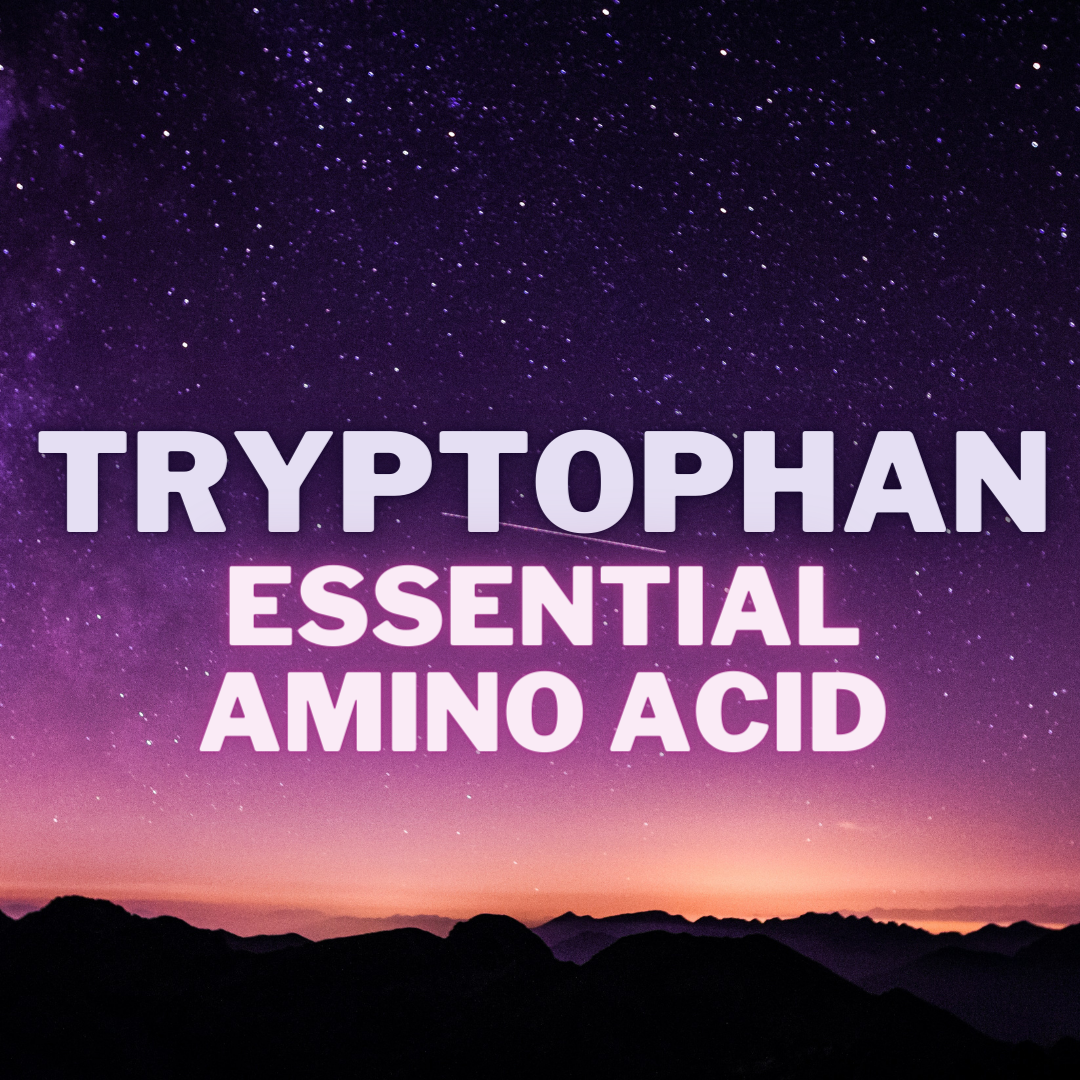
Will Thanksgiving Dinner Put You to Sleep? The Truth About Tryptophan and That Post-Meal Drowsiness
Ah, Thanksgiving—where your table overflows, and so does your waistband. As we gather around for feasts of turkey and too many desserts, there’s an enduring myth that it’s the tryptophan in turkey that knocks us out cold. But does tryptophan truly deserve this sleepy reputation?
Let’s talk turkey and the fascinating amino acid tryptophan. Found in high-protein foods like turkey, tryptophan is one of the nine essential amino acids, critical for protein synthesis and cognitive function. It’s in the lineup of any quality essential amino acid (EAA) supplement, as its role in muscle support and repair is well-documented. However, the story of tryptophan goes beyond muscle. It’s a key player in our cognitive and emotional health—a biochemical multitasker with a complex role in our mood, memory, and sleep.
Tryptophan: More Than Just a Muscle Supporter
Tryptophan isn’t just about keeping those biceps strong; it’s central to our mental well-being. Our brains are particularly fond of tryptophan for its role in synthesizing serotonin—a neurotransmitter famed for its influence on mood, impulse control, and even aggression. Studies have shown that individuals with diets low in tryptophan-rich foods often report depressive symptoms, increased aggression, and impulsivity. Imagine tryptophan as the doorman to your brain’s “calm” club; without it, unruly thoughts can sneak past the velvet rope.
The Tryptophan-Serotonin Connection
The tryptophan-serotonin pathway offers insight into just how crucial this amino acid is. Tryptophan is converted to serotonin, impacting everything from our mood to our sleep patterns. Reduced tryptophan can spell chaos for serotonin levels, leading to potential mood swings and even cognitive impairments. Think of serotonin as a balancing beam—when it’s off, the brain’s emotional stability teeters.
Moreover, serotonin doesn’t just stop at mood. It’s the precursor to melatonin, the hormone regulating our sleep-wake cycles. Tryptophan is metabolized into serotonin, which then transforms into melatonin, influencing the brain’s ability to drift into restful, restorative sleep. Studies on tryptophan supplementation show improved sleep onset and longer durations in sleep stages, reinforcing its role in sleep health.
Tryptophan for Cognitive Sharpness
A lesser-known role of tryptophan lies in cognitive function. Research has found that tryptophan depletion can hamper memory and delayed recall. In the short term, this means tryptophan is essential for acute cognitive flexibility—the mental agility to adapt to new information and shift gears with ease. Long-term, it’s crucial for memory retention and recall. So, when you’re dozing off post-pie, it’s not just because of the turkey but perhaps the cognitive load of processing an afternoon of socializing, digesting, and, of course, indulging in one dessert too many.
Why Those Desserts Are the Real Culprit
While tryptophan and its byproducts do play a role in sleep readiness, let’s be clear: it’s not likely the turkey’s fault you’re dozing off after Thanksgiving dinner. Instead, look at those sugary, carbohydrate-laden desserts. A spike in sugar causes insulin to surge, which then diverts amino acids to the muscles, making more tryptophan available to the brain. This increase triggers serotonin synthesis, nudging you closer to sleep—an effect compounded by the natural crash that follows a sugar high.
The Essential Role of Tryptophan in Mood, Sleep, and Performance
From synthesizing proteins to boosting mood, memory, and sleep quality, tryptophan proves itself indispensable. It’s no wonder this essential amino acid holds a prized position in our diets and supplement stacks. So, this Thanksgiving, when your eyelids start to droop post-dessert, remember: it’s not just the turkey. Instead, thank tryptophan for the serotonin and melatonin that help you rest, reset, and ultimately ready yourself for another slice of pie (and perhaps, a second helping of gratitude).
Enjoy your feast, rest well, and give thanks for tryptophan, the ultimate team player in the intricate orchestra of body and brain performance.
These statements have not been evaluated by the Food and Drug Administration. This product is not intended to diagnose, treat, cure or prevent any disease. This article is for informational purposes only and is not a substitute for professional medical advice. Always consult your healthcare provider regarding any health concerns or before starting new supplements.